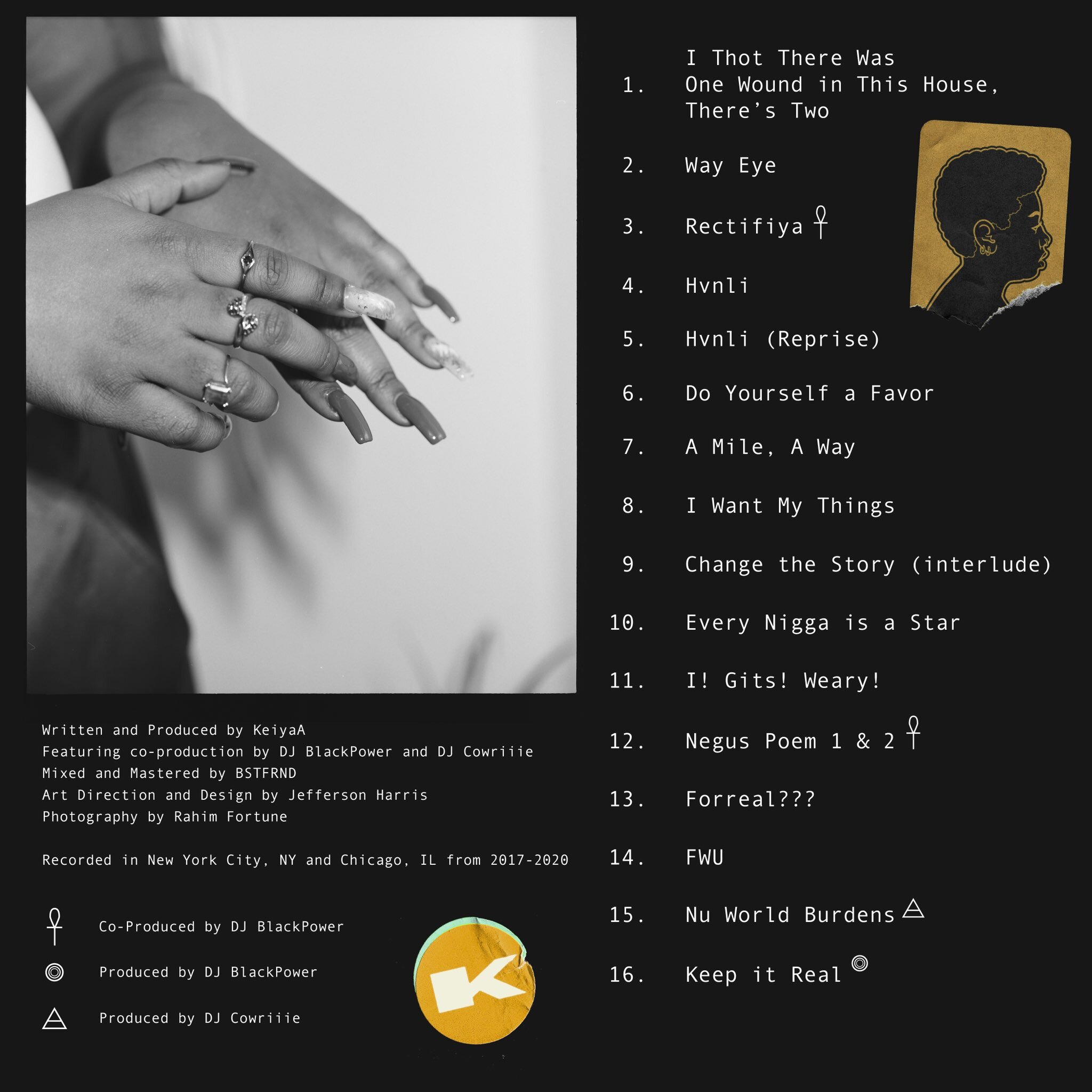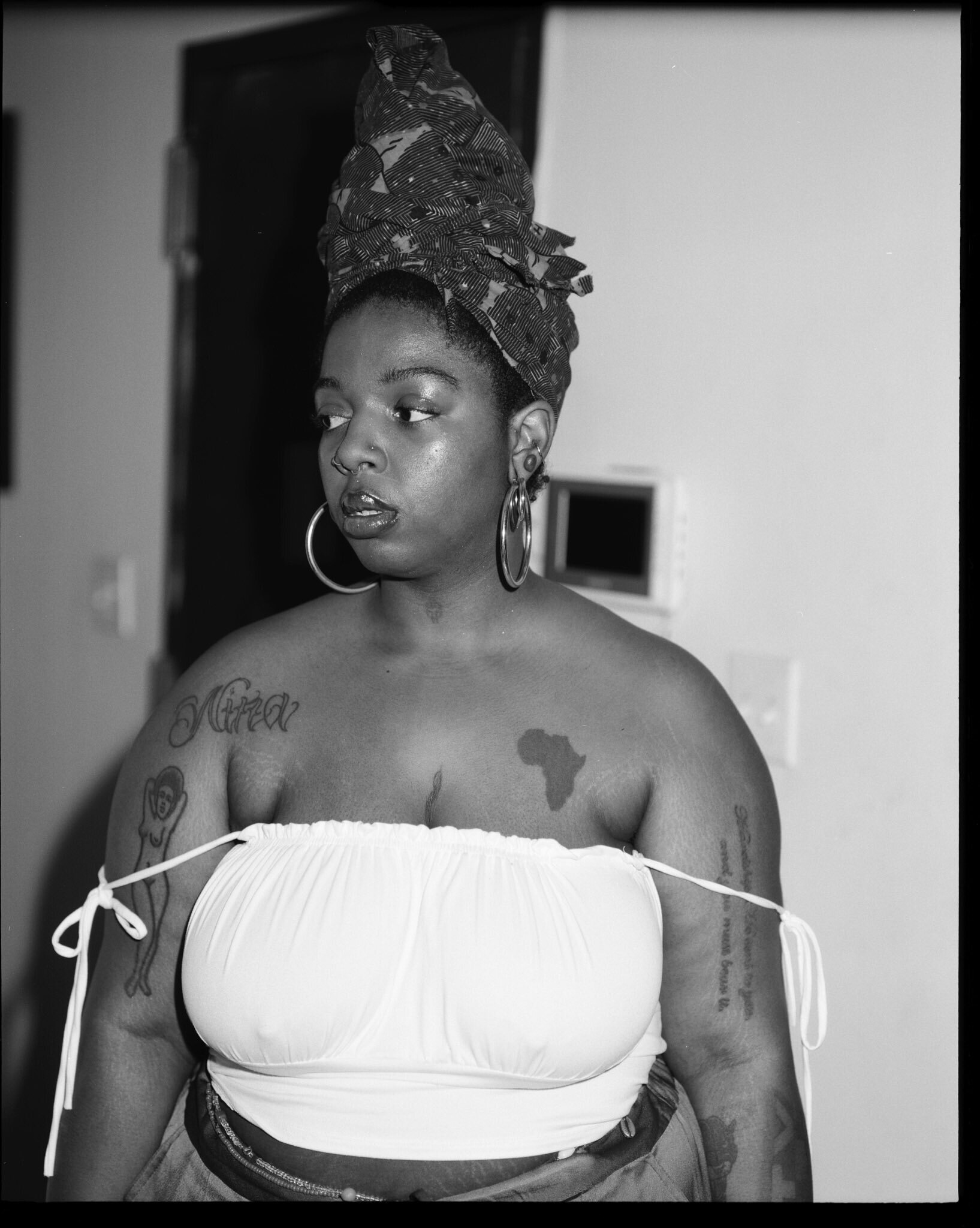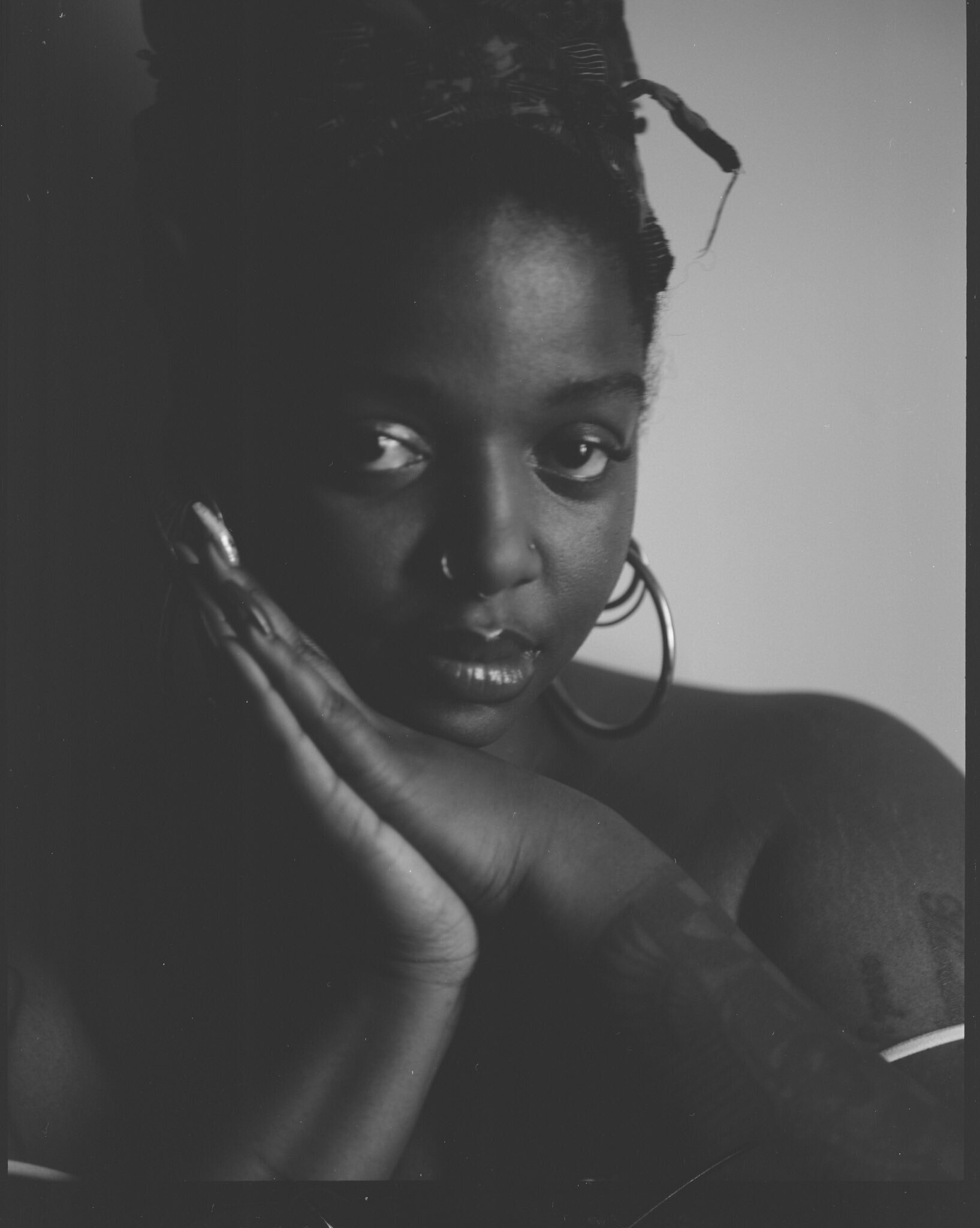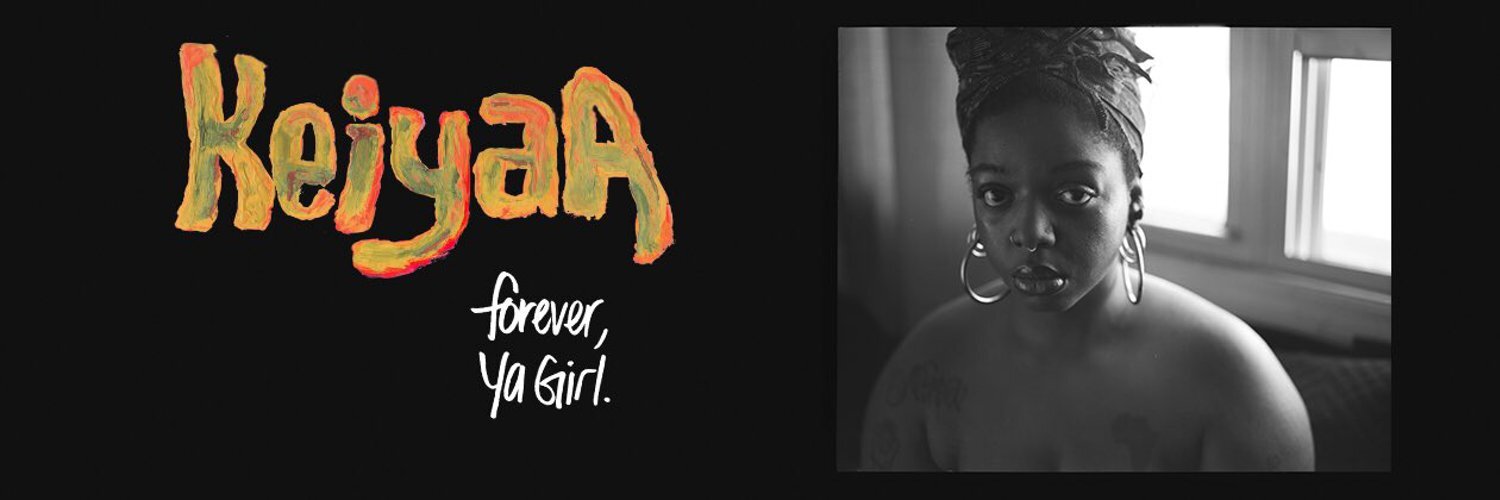Album Review: Forever, Ya Girl by KeiyaA
Forever, Ya Girl, the debut album from New York-based artist KeiyaA, is nothing short of revolutionary. It provides sincere commentary on coming-of-age from the perspective of an ever-evolving Black militant artist. Themes of loss, liberation, and love exist on the forefront. In April, KeiyaA performed Forever, Ya Girl for Afropunk’s Instagram in a live-stream. During her set, she said this album was for “herself, Black femmes, and Black people.” Throughout the performance, her contemporaries showered the chat section with praises, adlibs, and communal conversation. This album reflects the purpose of these Black artists, the ones helping lead our revolution: to facilitate physical, spiritual, mental, and psychological unity.
In a Facetime interview with KeiyaA, we discussed everything under her sun: performing live, the writing and production process, collaborating with friends, and the two years leading up to this release. Track by track, read about the stories, inspirations, and people behind KeiyaA’s debut album, Forever, Ya Girl.
I Thot There Was One Wound In This House, There’s Two
“i please you enough
i know that reason is tough to buck with...”
The opening track is simple in the best way. One of the many pop-culture references appearing in the album is this song's title, a nod to Loren Jordan from “Bad Girls Club.” Though it sounds bare, this song scratches the surface of what is yet to come on this album. Samples, echoing vocals, and repetitive, mantra-like lyrics are motifs found throughout Forever, Ya Girl.
This song leads in with an organ and adds soft-drums for rhythm. The lyrics are similar to others on the album and are not dense. Instead, they read like a poem or a personal journal. They are deeply honest, a trait KeiyaA does not shy away from on this project.
“get your boot off my neck, so we can both progress...
to hell with your fake ideals, that’s just the way I feel”
KeiyaA uses phonetic spellings for the songs and shared the need to “re-africanize in ways that aren’t trite.” She isn’t ordained with kemetic teachings, no. Through her art, she experiences a “repatriation with her own spirituality.”
Way Eye highlights KeiyaA’s singing and production prowess. The song is just over a minute but packs a strong warpy-loop that concludes in a comedic sample. She expertly layers her voice through improvisation to harmonize as a party within herself.
“these niggas on my back like white on rice
claiming they get healing from my energy
but baby, i need them to reciprocate”
Rectifya is the first of five songs to feature collaborative production. Four songs feature DJ Blackpower, aka MIKE, and one features DJ Cowriiie, KeiyaA’s alter-ego. This track finds balance through its soundscape and lyrics. Production is fleeting, like running through a jungle or experiencing a safari. The question, “Who rectifying me?” is part of the loop basing the track, making it near impossible to escape the inquiry for the duration of the song.
When asked about the turning moment in her life when she realized she had to rectify herself because no one would do it for her, KeiyaA admitted, “It’s hard to pinpoint one moment, there have been several. When you learn that you inherit the fears of your parents. Having to quit my job, where I was making a $60k salary for an event ticketing company and trying to moonlight doing art on the side. Quitting that was a big moment because I did it for myself. There were a few personal relationships, both romantic and familial, where I had inherited a belief that it was normal to put myself second. Over the course of a few years, I did what I needed to do and took my power back. Once I started to see how doing for myself in turn made me more able to help myself and my community, [I understood].”
“gone for so long,
i prefer to spend time alone with my pain”
“gone for so long
i can surely afford to be in the rain”
“When I said I could barely feed myself. I meant that,” KeiyaA said. “I was kind of spiraling. I was also like ‘I don’t want to die. I had no choice but to turn inward.” Hvnli reimagines the place of call-and-response in a composition.
Hvnli (Reprise) is a song of worship for the God within ourselves. Immediately following the track “Hvnli,” its reprise features a baptismal organ, layered vocals, and affirmative lyrics: “I can barely afford to eat/But my love is heavenly.”
Both draw inspiration from church music, “I wouldn’t say I grew up in the church, but I had enough experiences there growing up. That form of worship, which is inherently African because it comes from Yoruba spiritualities...I wanted to synthesize and revere all of that in one. I wanted to make an ode to taking that worship and turning it in[ward]. It is not that religion is inherently bad when Black people worship it, but certain religions take African spiritual practices and strip the power of self away. That is why I synthesized this content with the sonics of gospel.”
photos by Rahim Fortune“if you see me walking down the street one day, don’t say nothing to me,
cause you did me wrong when I was doing bad- so bad. i didn’t think i could make it,”
This is one of our favorite songs on the album. KeiyaA leaned on her beautiful voice for this one. The song’s lyrics are repeated halfway through; she gives it to a listener raw at first and then introduces a more complex composition.
KeiyaA teases a unique percussive attitude here- Not many musicians can carry a cadence and rhythm like KeiyaA can. The song builds in sonic complexity while maintaining a live and improvised texture.
“i see my future from a mile away
i know we all are bound for brighter days”
This is one of our party picks from the album. It’s dancy and can easily soundtrack any pregame. It’s both fun and remains aligned with the overall theme of Black liberation woven throughout. Lyrically, we hear a boastful KeiyaA: “I see a hater from a mile away/I'll see them later, I'm a mile away.” The production is led by a looped synth progression and drums. “Everybody expects me to be real light on the drums,” KeiyaA explained.
“the moment we say "we're enough...
we're enough, we're valuable";
that's when we change the story.”
KeiyaA uses this interlude as a forerunner for the following track, appropriately titled “Every Nigga is a Star.” KeiyaA admitted, “I knew [this] would be a ‘beating niggas over the head’ kind of message, but I wanted to remind them: you’re dope!”
“i'm a leo so i prefer to cook with high heat
ask me for a heater with no herb, I tell ya fight me”
KeiyaA’s rap delivery comes as a pleasant surprise amidst her soulful repetition of the title, Every Nigga Is A Star.
This song came later in the album’s production- in the two-week span in February where the bulk of Forever Ya Girl was born.
KeiyaA shared that she “just sat at a desk,” until the song was completed. With traditional song structure in mind she achieved an anthem for women to revel in. The quotables don’t hurt either. The song is chock full of catchy punchlines on par with your favorite rapper.
“is it my spirit crying, or is it the psilocybin?
'cause i can feel it on the regular!”
“It’s a sample, but it is definitely one of my tags; I think I have a few... ” KeiyaA shared. She explained the interpolated lines from Shange’s For Colored Girls. The words “I want my rhythm!” meld perfectly into the song's kick drum and flute-like keys. Another party song for us, this track is house-driven. KeiyaA was raised in Chicago, where the genre originated.
Contrary to its lively production, the lyrics on this song are not celebratory. They initiate a dialogue where Black people can acknowledge struggles we face as a community and offer release (i.e. housing, anti-black policies, and depression). Ultimately, this song provides a platform for us to recognize transgressions we face unitarily; it feels empowering and validating.
“real niggas never die…”
The haunting, fuzzy, ‘woop’ plays in the beginning with delayed voices and hi-hats dripping over it. KeiyaA’s attitude toward production is recommended if you like Melanie Charles, ABRA, Kelela or Thundercat.
Her lo-fi vocals don’t necessarily take a backseat in the song but sit tastefully alongside the beat. The composition rides along like an improvised cypher between all of KeiyaA’s talents. Interestingly enough, KeiyaA shared that “real jazz niggas know what’s up with improvisation.” She often ran with a line, building it up over time, over live performances until a complete idea was formed for the album.
This is the first track to get a music video. KeiyaA was approached by New York based-videographer Chris Currence. Truthfully, the album circled back around the production of the video.
There were different plans about finishing the album, doing videos and touring. Things changed when Negus Poem 1 & 2 released on Youtube. The album was released shortly after.
“i really wanna fuck on you in this time of war
'cause ain't it really love that we all are fighting for?”
The synth on this song acts as an echoing, distorted sonic warp, leaving lo-fi drums to provide a rhythmic consistency for the track. It brings to light a dilemma some are facing during the quarantine: our relationships, what we want, and what we expect from them.
The opening lyrics are a nod to Nicki Minaj’s verse on Young Money’s Bedrock: “Before I put this pussy on your sideburn...” As the song progresses, KeiyaA explores the repercussions of sleeping with a friend: “[It’s about the idea that] there’s a person, and we have energy, and for some reason we feel like we can’t act on it. You’re [questioning], ‘Should I fuck my friend?’ Because you don’t want to fuck up the friendship. But then, shouldn’t the person you’re fucking be your friend?” KeiyaA elaborated on ‘[moving] from a place of lack’, “The place of lack ultimately is deciding “I don’t want to have sex with you just because I’m horny and I need a body, and I want to make sure I’m not gonna beat myself up because of this.”
“no matter what you do, please don’t send my shit around the room
no matter what you do, please don’t pass my spliff around the room,”
The textures in the beginning are producer’s heaven. When asked about her production process KeiyaA shared that there is much to unlock on Ableton. “There is a lot of intention but also lots of going forward without knowing what [a song] will sound like.,”
“F.w.u” has lots to celebrate. We love Her repeated use of lyrics “Burdens you never deserved,” and innovative use of classic audio tools like delay and reverb.
“we deserve to go home!
our souls will never be owned again!”
“Nu World Burdens” addresses black people’s burden of ancestors, of whiteness, and of capitalism in America. KeiyaA described what ridding our burdens would look like to her, “I do think it looks like breaking up our relationship with needing to be validated by Western ideals, [and] part of that process is understanding that we’re doing it.”
“We have to understand what old world versus new world means: what is African, what was considered African, and what wasn’t. We’re not talking about kente cloths versus durags. We’re talking socialization, something that applies to all Black people on a global scale, regardless of who you are. It’s deciding, whoever you are, in whatever part of your life, to commit to try to divest from Western ideals or reinvest yourself into new, African ideals,” KeiyaA said.
“you know what I got,
don’t you work with me”
Despite debuting an album with friends in the credits, KeiyaA admits to being “hard to work with.”
“It was my way or the highway. After a while [true collaboration] was needed.” she shared. “When MIKE and I would link up, we would set intentions. ‘We are working with the intentions of making beats,’ [I would say.] I know I can go into [a producer mindset]. I am able to use whatever arsenal at that moment.”
written by Chanell Noise and Angelie Benn




